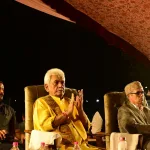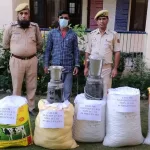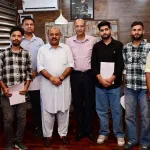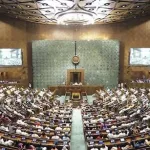A transgender (often abbreviated as Trans) person is someone whose gender identity or gender expression does not correspond with their sex assigned at birth. Many transgender people experience dysphoria, which they seek to alleviate through transitioning, often adopting a different name and set of pronouns in the process. Additionally, they may undergo sex reassignment therapies such as hormone therapy and sex reassignment surgery to more closely align their primary and secondary sex characteristics with their gender identity. Not all transgender people desire these treatments, however, and others may be unable to access them for financial or medical reasons. Those who do desire to medically transition to another sex may identify as transsexual.
Transgender is an umbrella term. In addition to trans men and trans women, it may also include people who are non-binary or gender queer. Other definitions of transgender also include people who belong to a third gender, or else conceptualize transgender people as a third gender, and the term may be defined very broadly to include cross-dressers. Gender identity is distinct from sexual orientation, and transgender people may be of any sexual orientation. The opposite of transgender is cisgender, which describes people whose gender identity matches their assigned sex.
Statistics on the number of transgender people vary widely, in part due to differing definitions of transgender. Some countries, such as Canada, collect census data on transgender people. Transgender identity is generally found in less than 1% of the worldwide population, with figures ranging from <0.1% to 0.6%. Many transgender people face discrimination in the workplace, in accessing public accommodations, and healthcare. In many places, they are not legally protected from discrimination.
Lesbian, gay, bisexual and transgender (LGBT) rights in India have been evolving rapidly in recent years. However, Indian LGBT citizens face social and legal difficulties not experienced by non-LGBT persons. There are no legal restrictions against gay sex or gay expression. Gay couples can attain rights and benefits equal to married couples as a live-in couples (analogous to cohabitation) as per a Supreme Court judgement, which offers some sembience of equality in a country where the vast majority of marriages are not registered with government.
The Transgender Persons (Protection of Rights) Act, 2019 recognizes the right to self-perceived gender identity, thus allowing transgender people to register themselves under a third gender (transgender). In the case of gender confirmation surgery, identification as male or female can be issued once a certificate is provided by a relevant medical official. Transgender have a constitutional right to register themselves under a third gender. Additionally, some states protect hijras, a traditional third gender population in South Asia through housing programmes, and offer welfare benefits, pension schemes, free operations in government hospitals as well as other programmes designed to assist them. There are approximately 480,000 transgender people in India as per Census 2011.
Amidst strong political movements in favour of LGBT rights, people are more accepting of same-sex relationships, with around three out of four Indians supporting them according to an opinion poll. In the 2010s, LGBT people in India increasingly gained tolerance and acceptance, especially in large cities.
Article 15 of the Constitution of India states that:
- Prohibition of discrimination on grounds of religion, race, caste, sex or place of birth
(1) The State shall not discriminate against any citizen on grounds only of religion, race, caste, sex, place of birth or any of them.
(2) No citizen shall, on grounds only of religion, race, caste, sex, place of birth or any of them, be subject to any disability, liability, restriction or condition with regard to
(a) Access to shops, public restaurants, hotels and places of public entertainment; or
(b) The use of wells, tanks, bathing ghats, roads and places of public resort maintained wholly or partly out of State funds or dedicated to the use of the general public.
In the case of Navtej Singh Johar v. Union of India, the Supreme Court ruled that the Indian Constitution bans discrimination based on sexual orientation via the category of “sex”. Similarly in the case of National Legal Services Authority v. Union of India, the Supreme Court held that discrimination on the basis of gender identity is constitutionally prohibited.
Gender identity, in our view, is an integral part of sex and no citizen can be discriminated on the ground of gender identity, including those who identify as third gender. We, therefore, conclude that discrimination on the basis of sexual orientation or gender identity includes any discrimination, exclusion, restriction or preference, which has the effect of nullifying or transposing equality by the law or the equal protection of laws guaranteed under our Constitution. Supreme Court Judge K. S. Panicker Radhakrishnan said, “Sex as it occurs in Article 15, is not merely restricted to the biological attributes of an individual, but also includes their “sexual identity and character”.
Despite these constitutional interpretations, no legislative law has been enacted to ban discrimination on the basis of sexual orientation in employment since Article 15 only extended to discrimination from the state or government bodies. However, on 4 February 2021, the Allahabad High Court ruled that firing and discriminating against a person in employment on the basis of sexual orientation is a violation of Navtej Singh Johar v. Union of India ruling of the Supreme Court, hence extending the anti-discriminatory provisions to employment everywhere. In case of physical attacks against LGBT people, Section 307 (Attempt to murder) or Section 323 (voluntarily causing hurt) of the Indian Penal Code is used against the perpetrator. In case of hate speech, Section 153 A (Hate Speech Law) of the code has been previously used.
In August, 2018, the National Human Rights Commission of India set up the LGBT core group and appointed openly gay politician Harish Iyer in its 15 members committee in a bid to enforce human rights related legislations pertaining to LGBTQ people and counter discrimination.
Transgender Persons (Protection of Rights) Act, 2019
Adopted in 2019, the Transgender Persons (Protection of Rights) Act, 2019 bans discrimination against transgender people in educational establishment and services, employment, healthcare services, access to the “use of any goods, accommodation, service, facility, benefit, privilege or opportunity dedicated to the use of the general public or customarily available to the public”, the right to movement, the right to “reside, purchase, rent or otherwise occupy any property”, the opportunity to stand for or hold public or private office, and in government or private establishments.
There have been reservations among some in the transgender community, both regarding the difficulty of obtaining a certificate, and because of lack of awareness and lack of sensitivity to the issue among local public officials. LGBTQ protests against the bill have occurred, with claims that the bill hurts the transgender community instead of helping it. Protesters noted the provision for certification, but criticized the fact that this would require people to register with the government in order to be recognized as transgender. They also criticized the inequality inherent in the vast differences in punishment for the same crime, such as sexual abuse, committed against violating a transgender or cisgender individual.
LGBT activists are encouraging people who have faced discrimination because of their sexual orientation or gender identity in other non-state areas to mount challenges in court, seeking to test the jurisprudence set by the two rulings. They are also campaigning for an explicit anti-discrimination law that would extend everywhere.
(The Author is Senior Advocate and a Humanitarian Law expert)





